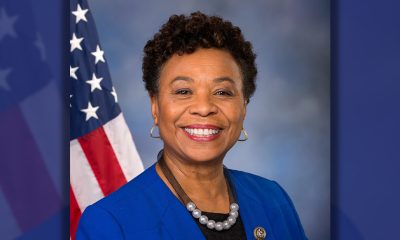Bay Area
As Opioid Crisis Hits Home, Black Media Outlets Step Up to Get Word Out

By the late 1970s, drug traffickers were shipping so much cocaine to the United States that the street price of the powdered stimulant dealers cooked to make crack – the smokable rock form of the stimulant –dropped by nearly 80 percent, according to the Drug Enforcement Agency (DEA).
Some historians believe that new affordability of cocaine aided the flooding of crack or “rock” into cities and towns across the United States, particularly in African-American communities where the illicit trade of the drug contributed to sharp increases in gang-related violence and murders during that period.
By 1985, almost 6 million Americans admitted to using some form of cocaine, according to the DEA.
Then, in the 1980s, President Ronald Reagan launched the government’s multi-pronged and widely criticized “War on Drugs” designed to toughen drug crime laws and aggressively pursue and incarcerate drug users and traffickers. Those policies led to the imprisonment of millions of African-Americans from the early 1980s until now.
By 2013, African-American men and women accounted for more than 50 percent of the total United States prison population.
Now, more than two decades after the height of the crack era, African-American neighborhoods in California and around the country are facing another haunting drug epidemic: The Opioid Crisis, stemming from untreated addictions to potent – and potentially dangerous –drugs like Codeine, Fentanyl, Methadone, Morphine and Oxycodone, among others.
Although the mainstream news media has largely framed the opioid crisis as a problem America’s majority-white rural and suburban communities are wrestling with, data shows that it is, in fact, becoming a problem in predominantly African-American neighborhoods across the country as well.
A public awareness campaign, dubbed “Choose Change California,” will employ a combination of advertising as well as news stories and profiles to inform Californians about opioid abuse in the state and direct people who are affected to locations where they can seek Medication Assisted Treatment (MAT).
“We can’t afford to go through another drug epidemic that kills our children, parents, brothers and sisters,” said Regina Wilson, Executive Director of California Black Media.
In 2018, more than 10 million Americans misused opioids, according the the U.S. Department of Health and Human Services.
In California, there were 5.3 opioid-related deaths for every 100,000 people in 2017. Among African-American Californians, that number is about 1.4 for every 100,000, a high number based on the state’s Black population of nearly 6 percent.
And the death rate from overdoses of the synthetic opioid Fentanyl is rising fastest among African Americans.
In a statement shared with California Black Media, CDHCS says the media campaign began in April 2019 and includes digital, television, print, and billboard advertising and will continue through 2020.
On Oct. 12, 2019, Gov. Gavin Newsom signed Assembly Bill 919 into law introduced by Assemblymember Cottie Petrie-Norris (D-Laguna Beach.)
It mandates CDHCS to license all addiction treatment centers in the state and requires that they adopt the American Society of Addiction Medicine’s treatment criteria as an operating standard.
Activism
Oakland Post: Week of April 24 – 30, 2024
The printed Weekly Edition of the Oakland Post: Week of April 24 – 30, 2024

To enlarge your view of this issue, use the slider, magnifying glass icon or full page icon in the lower right corner of the browser window. ![]()
Alameda County
DA Pamela Price Stands by Mom Who Lost Son to Gun Violence in Oakland
Last week, The Post published a photo showing Alameda County District Attorney Pamela Price with Carol Jones, whose son, Patrick DeMarco Scott, was gunned down by an unknown assailant in 2018.

Publisher’s note: Last week, The Post published a photo showing Alameda County District Attorney Pamela Price with Carol Jones, whose son, Patrick DeMarco Scott, was gunned down by an unknown assailant in 2018. The photo was too small for readers to see where the women were and what they were doing. Here we show Price and Jones as they complete a walk in memory of Scott. For more information and to contribute, please contact Carol Jones at 510-978-5517 at morefoundation.help@gmail.com. Courtesy photo.
Bay Area
State Controller Malia Cohen Keynote Speaker at S.F. Wealth Conference
California State Controller Malia Cohen delivered the keynote speech to over 50 business women at the Black Wealth Brunch held on March 28 at the War Memorial and Performing Arts Center at 301 Van Ness Ave. in San Francisco. The Enterprising Women Networking SF Chapter of the American Business Women’s Association (ABWA) hosted the Green Room event to launch its platform designed to close the racial wealth gap in Black and Brown communities.

By Carla Thomas
California State Controller Malia Cohen delivered the keynote speech to over 50 business women at the Black Wealth Brunch held on March 28 at the War Memorial and Performing Arts Center at 301 Van Ness Ave. in San Francisco.
The Enterprising Women Networking SF Chapter of the American Business Women’s Association (ABWA) hosted the Green Room event to launch its platform designed to close the racial wealth gap in Black and Brown communities.
“Our goal is to educate Black and Brown families in the masses about financial wellness, wealth building, and how to protect and preserve wealth,” said ABWA San Francisco Chapter President LaRonda Smith.
ABWA’s mission is to bring together businesswomen of diverse occupations and provide opportunities for them to help themselves and others grow personally and professionally through leadership, education, networking support, and national recognition.
“This day is about recognizing influential women, hearing from an accomplished woman as our keynote speaker and allowing women to come together as powerful people,” said ABWA SF Chapter Vice President Velma Landers.
More than 60 attendees dined on the culinary delights of Chef Sharon Lee of The Spot catering, which included a full soul food brunch of skewered shrimp, chicken, blackened salmon, and mac and cheese.
Cohen discussed the many economic disparities women and people of color face. From pay equity to financial literacy, Cohen shared not only statistics, but was excited about a new solution in motion which entailed partnering with Californians for Financial Education.
“I want everyone to reach their full potential,” she said. “Just a few weeks ago in Sacramento, I partnered with an organization, Californians for Financial Education.
“We gathered 990 signatures and submitted it to the [California] Secretary of State to get an initiative on the ballot that guarantees personal finance courses for every public school kid in the state of California.
“Every California student deserves an equal opportunity to learn about filing taxes, interest rates, budgets, and understanding the impact of credit scores. The way we begin to do that is to teach it,” Cohen said.
By equipping students with information, Cohen hopes to close the financial wealth gap, and give everyone an opportunity to reach their full financial potential. “They have to first be equipped with the information and education is the key. Then all we need are opportunities to step into spaces and places of power.”
Cohen went on to share that in her own upbringing, she was not guided on financial principles that could jump start her finances. “Communities of color don’t have the same information and I don’t know about you, but I did not grow up listening to my parents discussing their assets, their investments, and diversifying their portfolio. This is the kind of nomenclature and language we are trying to introduce to our future generations so we can pivot from a life of poverty so we can pivot away and never return to poverty.”
Cohen urged audience members to pass the initiative on the November 2024 ballot.
“When we come together as women, uplift women, and support women, we all win. By networking and learning together, we can continue to build generational wealth,” said Landers. “Passing a powerful initiative will ensure the next generation of California students will be empowered to make more informed financial decisions, decisions that will last them a lifetime.”
-

 Activism4 weeks ago
Activism4 weeks agoOakland Post: Week of March 27 – April 2, 2024
-

 #NNPA BlackPress4 weeks ago
#NNPA BlackPress4 weeks agoBeloved Actor and Activist Louis Cameron Gossett Jr. Dies at 87
-

 Community1 week ago
Community1 week agoFinancial Assistance Bill for Descendants of Enslaved Persons to Help Them Purchase, Own, or Maintain a Home
-

 Activism3 weeks ago
Activism3 weeks agoOakland Post: Week of April 3 – 6, 2024
-

 Business1 week ago
Business1 week agoV.P. Kamala Harris: Americans With Criminal Records Will Soon Be Eligible for SBA Loans
-

 Activism2 weeks ago
Activism2 weeks agoOakland Post: Week of April 10 – 16, 2024
-

 Community1 week ago
Community1 week agoAG Bonta Says Oakland School Leaders Should Comply with State Laws to Avoid ‘Disparate Harm’ When Closing or Merging Schools
-

 Community6 days ago
Community6 days agoOakland WNBA Player to be Inducted Into Hall of Fame























































